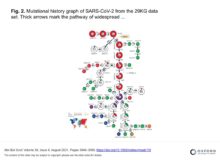by Jonathan Latham, PhD
In 2002, peasant associations from all over Asia organised an international scientific conference. The motivation for the conference was the fact that peasants and their leaders had no dialogue with agricultural scientists, either from their own countries or with those from abroad. A lack of support from scientists was not the only motivation however. The peasants had also come to believe that the science with which they were familiar was actively hostile to their way of life. As a result, many had demonstrated outside the UN-sponsored International Rice Research Institute (IRRI) in the Phillipines, a research centre set up specifically to support farming in developing countries.

Nevertheless, they certainly did not feel that science was inherently incapable of being useful-some of them had even set up their own independent research farms on which they could conduct their own experiments with the crops that interested them. Thus, these peasants were not anti-science, rather, at issue was the specific type of science conducted at IRRI and elsewhere. It did not serve their needs, they did not even aspire to grow rice in the way that IRRI did, and it was impossible not to conclude that IRRI must have been serving someone else’s needs instead.
The relationship between these Asian peasant farmers and agricultural science is interesting because it corroborates the one depicted in The Unsettling of America. Wendell Berry is a philosopher and also a farmer, and as such has seen agricultural science from a perspective from which it is rarely judged. From that vantage point he ranges widely, drawing together observations and inferences that together sustain a fair-minded and coherent critique of modern society, the roots of ecological damage and the role of science as a force in modern life.
Much of his attention is directed at agricultural research. Despite widely acclaimed successes, most individual American farmers, have over the last fifty years, experienced not agricultural success but personal and economic failure. As a consequence, most of them no longer farm at all. Like the Asian peasants, most of them did not wish to leave the land, but even though we live in democracies that purport to value independence, self-reliance and small businesses, we have been persuaded that the switch from family farms to industrial scale agriculture represents success rather than failure. We are expected to celebrate increased farm sizes, productivity gains and lower food prices as if these were historical necessities inseparable from modern civilisation and progress.
Wendell Berry thinks instead that these explanations are the stories of the winners-agribusiness, universities and American power. Stories which are necessary to obscure the fact that change was the result of choices made for the sake of agribusiness and international geopolitics, relying on science as a mechanism and progress as the justification. For these choices we are now paying very dearly indeed-in pollution, food quality, declining sustainability and social dislocation. Wendell Berry plausibly and eloquently traces these costs to a few key causes that are connected more-or-less directly to the social role of agriculture in traditional societies. Some modern readers may find this a rather surprising conclusion. We are accustomed to causes being financial, rational or legal, rather than moral or social but Wendell Berry is a philosopher and he makes his case with persuasive logic.
How agricultural change came about is intimately connected to the story of agricultural research. Research has enabled modern farming and Wendell Berry has much of interest to say about the practice and value systems of modern research and in particular its relationship with agribusiness, which he characterises broadly as mutualistic and therefore very different from the relationship of research with farmers.
Anyone involved in fields related to agricultural research should value this fascinating, subtle and challenging book. Even though The Unsettling of America was written some thirty years ago, the rest of the world has yet to catch up.
ISBN: 0871568772 Publisher: Sierra Club books (1977)



